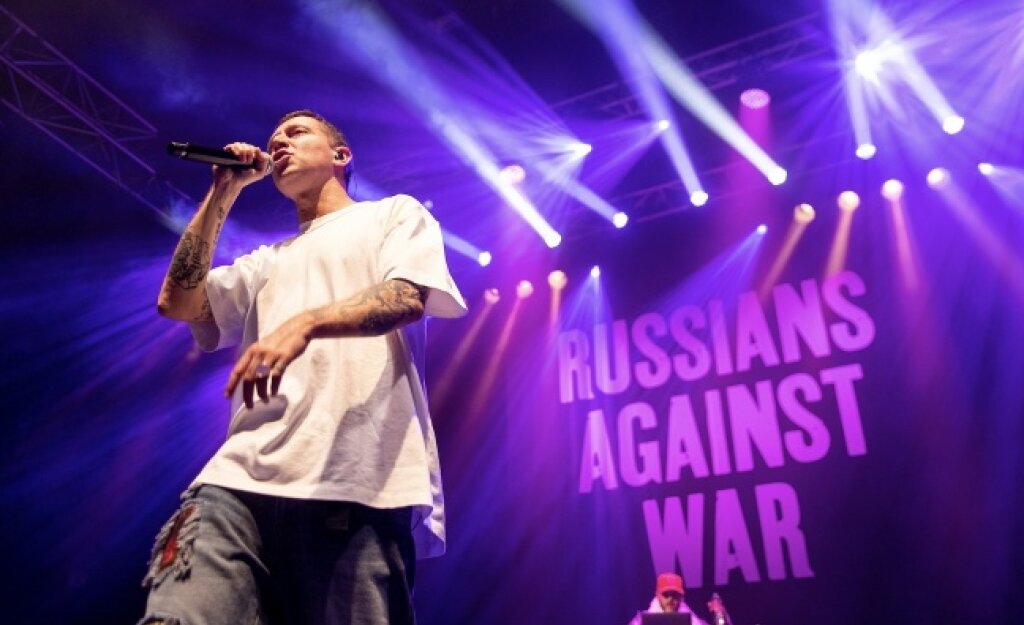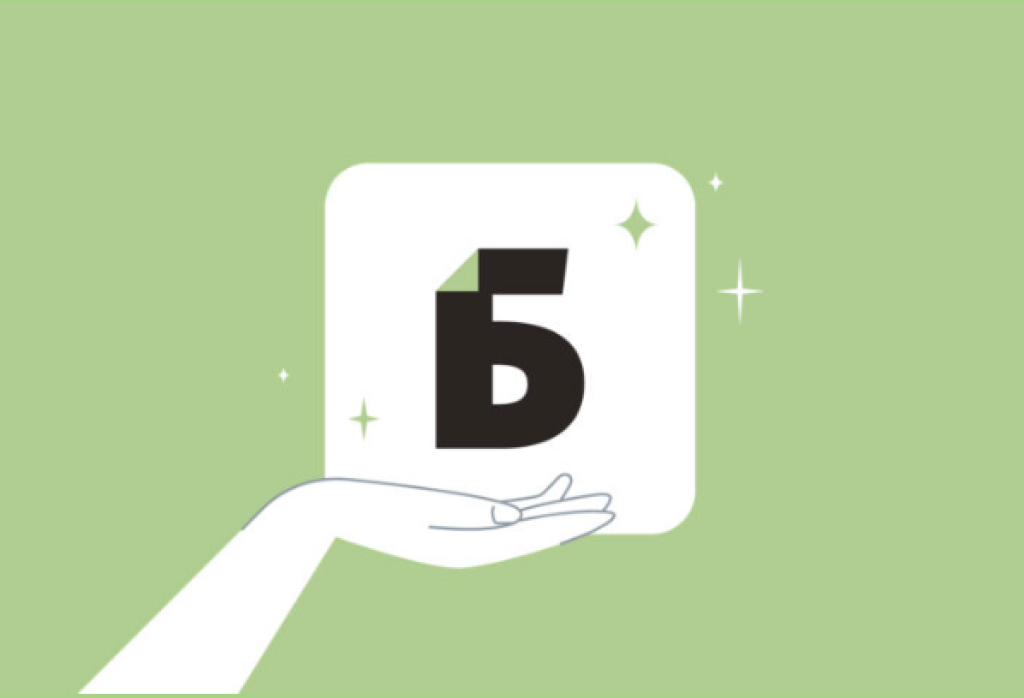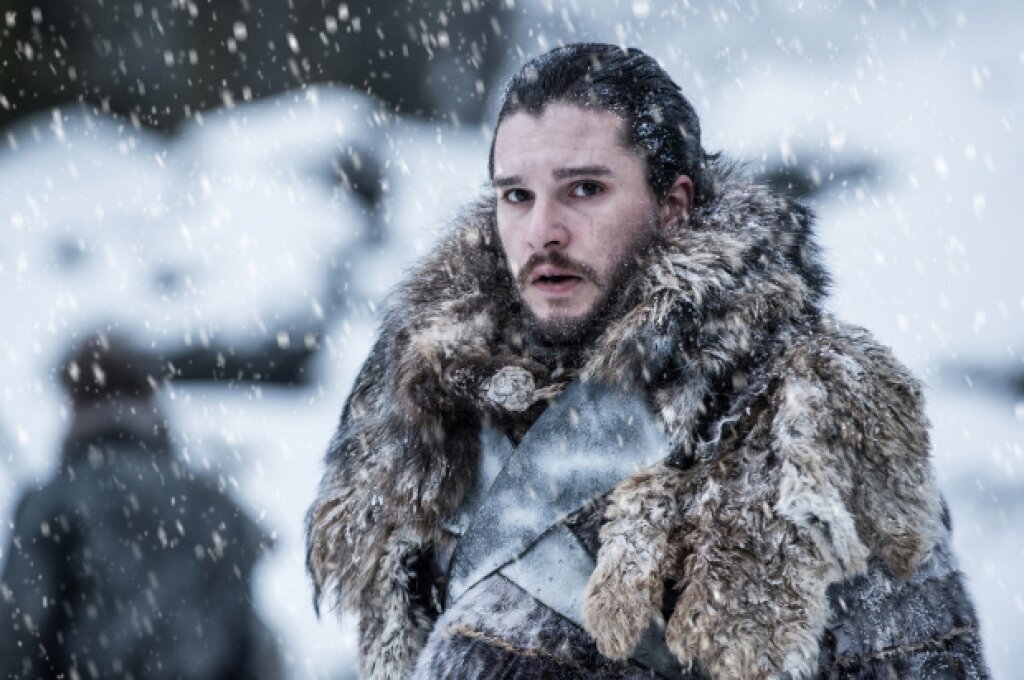We at the Jordan Center stand with all the people of Ukraine, Russia, and the rest of the world who oppose the Russian invasion of Ukraine. See our statement here.
Samuel Driver, a PhD Candidate in Slavic Studies at Brown University, is a Fulbright-Hays DDRA Grantee and a Stanford U.S.-Russia Forum Fellow.
Above: Oxxxymiron performing at his charity concert, “Russians Against War.” Source: MusicWeek
Since the Russian invasion of Ukraine on February 24, Western treatment of Russians and Russian culture has included actions ranging from threatening to revoke visas for Russian citizens to banning Dostoevsky and vodka. It is against this background that it becomes especially important to consider the nuances of Russian cultural discourse, which help illuminate the identity-creation and agency of ordinary Russians with little influence on the country's ruling elites.
Russian-language rap offers special insight into Russia's wartime cultural scene. In recent years, music and digital cultural production have become powerful tools for understanding youth discourse in Russia. It is this connection that underpins my co-authored article, “Beyond Hacking and Western Hegemony: Russian Youth Culture in the Digital Sphere through the Audio-Visual Art Group IC3PEAK” (forthcoming in Summer 2022 in SURF). Focusing on the electronic music duo IC3PEAK, this article attempts to counteract the idea of a unidirectional cultural flow between America and Russia, instead showing that cultural producers online find an agency that defies common stereotypes about Russian youth. Since the start of the war, identity-building practices have become especially important amid waves of anti-war statements, protests, and actions that have taken place across the country and online (IC3PEAK themselves being quite vocal in their opposition to the war).
Far from being an "alternative" genre exclusively for dissenters, Russian rap has been deployed for purposes of government propaganda as well. In 2018, the Kremlin sought to suppress the rising movement and, where this was impossible, to co-opt it. As Putin would say to his culture council, “if it is impossible to stop, then we need to lead and guide it accordingly.” The Kremlin understands the importance of rapper voices and their ability to serve as conduits for dissent. It is thus no surprise that, besides Nadezhda Tolokonnikova and Veronika Nikulshina of Pussy Riot, the only music-adjacent names on the list of “foreign agents” are rappers.
As Oxford-educated rapper Oxxxymiron put it in his 2021 song, "a foreign agent in Russia is anyone who isn't under special protection or a cop." The day after the invasion, Oxxxymiron canceled his Russian tour and instead put together a string of charity shows called “Russians Against War” that played in Berlin, Istanbul, and London, cumulatively raising over $220,000 for Ukrainian refugees. It was in a discussion of these charity shows that one commentator on the Russia 24 television channel described the slogan “no to war” as a propaganda phrase used by the Nazis. In a February 24 conversation with The New York Times, Oxxxymiron said that "most people in Russia are against this war, " adding that he was "confident" that "that the more people would talk about their real attitude to it, the faster we can stop this horror.”
FACE, a rising star of Russian rap whose satirical video “I’m Dropping the West” had garnered him a short-lived fanbase in the Kremlin, has more recently become a prominent oppositional figure. On April 8, he thanked Putin for what he called "the best birthday present"—the "privilege" of becoming the first rapper designated as a “foreign agent.” Since the onset of the war, FACE, like scores of Russians, left the country and has spoken out forcefully against Putin’s regime and the invasion of Ukraine in particular. In an April 20 interview with Rolling Stone, FACE spoke of hope as a way to move forward: “We have a lot of Soviet mentalities still going on in the older generations,” he said, adding that current Russian leadership perpetuates an imperial attitude toward neighboring countries and ethnic minorities. “But there’s really a freedom mentality going on in Russia in the younger generation," he continued. "It’s my hope for a bright future in Russia and neighboring countries. I’m fighting exactly for this part of my people.” Like Oxxxymiron, FACE has put together a charity tour with the Ukrainian rock-group Nervy and Russian rock-group Pornofilmy to raise money for Ukrainian humanitarian aid.
Other rappers, like Boulevard Depo, have attempted to negotiate an apolitical position. In a March 13 Instagram post, Depo states that his music, unlike that of other musicians unable to release albums under the current laws, will “come out as before” without betraying his views or “sowing discord among listeners.” “Don’t like it? Don’t eat it,” he concluded.
At the other end of the spectrum is one of the few high-profile artists speaking in defense of Russia’s invasion: the rapper and MMA enthusiast Timati, who has released several statements explaining the invasion as a "forced measure" enabled by Western funding and agitation. The infamously pro-Kremlin rapper (see his now-deleted video with Guf entitled “Moscow,” one of the most disliked videos in Russian YouTube history) vehemently defended Russia and his own patriotic stance, while still claiming to be against the loss of “innocent" life. Yet what is most notable about Timati’s treatment of the war concerns the idea of Russianness. On the one hand, his public comments situate him as Russian citizen who is “far from being [ethnically] Slavic” due to his Tatar and Jewish heritage. On the other hand, he continually blurs the boundary between ethnic and juridical "Russianness" by using the terms russkii (meaning "ethnically Russian") and rossiiskii (meaning "Russian citizen") interchangeably. It is this terminological ambiguity that allows Timati's discourse to maintain the idea of a unitary “us” versus an ethnically or culturally distinct “other,” particularly useful to a Russian war machine that is making heavy use of ethnic minorities like Chechens and Buryats to fight for the "Russian world" in Ukraine.
The stakes of speaking out have never been higher in Russia. In a clear recognition of the power of dissenting voices, Putin and his government have increased penalties for speech, whether through designation as a foreign agent, fines, the threat of incarceration, cancelling of concerts, or the removal of music from Russian-based DSPs and radio stations. As the war drags on, Russia may be growing more divided, with some commentators even arguing that sky-high approval ratings mask an underlining fear. It is in an effort to give voice to these often unspoken feelings that groups like IC3PEAK argue that “Russia ≠ Russian government. Russia ≠ Putin.”



